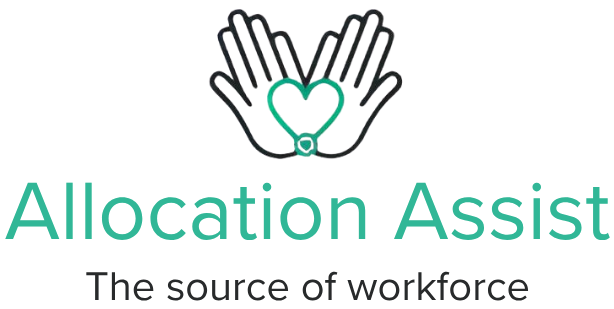To practice medicine in the UAE, you’ll need five core requirements: a recognized MBBS/MD degree from an accredited university, completion of postgraduate residency, Primary Source Verification through DataFlow ($150-300), passing the relevant emirate’s medical licensing exam (DHA, HAAD, or MOHAP), and maintaining annual Continuous Professional Development (40 hours). Each emirate has specific licensing processes, and you must complete verification within 30-45 working days. Understanding these detailed requirements will help guarantee your successful migration to UAE medical practice.
Essential Educational and Professional Credentials

Multiple essential credentials are required to practice medicine in the UAE. You’ll need a recognized medical degree (MBBS/MD) from an accredited university, supported by official transcripts. If you’re a specialist, you must complete postgraduate residency or board certification in your field. The DataFlow website processes all documentation verification for medical professionals seeking licensure in the UAE.
Your qualifications must come from institutions on approved lists by UAE health authorities. For degrees obtained outside the UAE, you’ll need equivalency documentation. The Primary Source Verification report is mandatory to validate all your educational and professional credentials. Language competency requirements mandate that all certificates be officially translated to English or Arabic. Ethics and good conduct verification is vital; you must provide a Good Standing Certificate from your previous licensing authority, issued within the last six months, proving no disciplinary or malpractice issues. Additionally, you’ll need documented proof of continuous clinical experience, with gaps over two years requiring additional training. You must obtain a specific Emirate license depending on where you plan to practice, such as a DHA license for Dubai or DOH license for Abu Dhabi.
Primary Source Verification and Documentation Process
Before you can practice medicine in the UAE, your credentials must undergo Primary Source Verification (PSV) through the DataFlow Group, the officially designated verification agency for all UAE health regulators. Professional healthcare applicants must maintain active registration in the Sheryan portal throughout the entire verification process.
To manage the administrative burden effectively, you’ll need to submit several key documents: a valid passport copy, recent photo, educational certificates, professional licenses, work experience certificates, and a Good Standing Certificate from your previous regulators. All non-English/Arabic documents require certified translation and notarization. The process includes verification fees ranging from $150 to $300 depending on your medical specialization. The verification process ensures that healthcare professionals have legitimate qualifications and are qualified to practice in the UAE healthcare system.
The verification process typically spans 30-45 working days, though complex cases may extend approval timelines to 60 days. You’ll receive one of three outcomes: Positive, Unable to Verify (with two appeal chances), or Discrepancy (with one appeal opportunity). Be aware that any falsified documentation results in permanent disqualification from UAE medical practice.
Medical Licensing Examination Requirements

Once your credentials have been verified through the PSV process, you’ll need to navigate the UAE’s medical licensing examination system. Each emirate has specific requirements: DHA for Dubai, HAAD/DOH for Abu Dhabi, and MOHAP for the remaining emirates.
For Dubai, you’ll take a DHA Prometric exam consisting of 150 MCQs in 150 minutes, with three exam attempt limitations per year. The exam fee ranges from USD 220 to USD 280 for medical professionals. Abu Dhabi requires the HAAD exam, conducted in Abu Dhabi or Al Ain locations. For other emirates, you’ll need the MOHAP exam, which may include written, oral, or Prometric components. All applications must be submitted through the Sheryan Portal for Dubai practitioners. Medical professionals must ensure they have no practice gaps exceeding three years to maintain eligibility.
You must meet eligibility criteria, including an MBBS/MD degree, internship completion, and clinical experience. Regional exam requirements mean you’ll need separate licensing for each emirate where you plan to practice, as licenses aren’t typically transferable between regions.
Registration and Fee Structure for UAE Practice
To begin practicing medicine in the UAE, you’ll need to complete a detailed registration process through the appropriate health authority portal, whether MOHAP, DHA, or DOH. The application portal requirements include creating an official profile and submitting verification through DataFlow, which authenticates your credentials for AED 500-1,200. Initial registration fees range from AED 200-300, while license activation costs between AED 1,000-5,000 annually. The Prometric examination required for licensing costs USD 280 for physicians and specialists. Medical professionals should allocate funds for potential re-examination fees if needed. All healthcare practitioners must maintain valid health insurance coverage as per DHA requirements.
Your license renewal process occurs every 1-3 years, requiring:
- Updated documentation and eligibility evidence
- Renewal fees of AED 3,000 yearly for physicians through DHA
- Completion of continuing medical education requirements
- Primary source verification of any new credentials
For visiting doctors, specialized registration fees apply, including a AED 4,000 fee for 12-month licenses and additional documentation requirements for temporary work contracts.
Continuous Professional Development and Compliance Standards

Maintaining your medical license in the UAE requires rigorous adherence to Continuing Medical Education (CME) and Continuous Professional Development (CPD) standards. You’ll need to complete 40 hours of CPD activities annually, with at least 20 hours being Category 1 accredited learning. There are online program limitations, as Dubai only permits 30% of annual CPD points through digital platforms. Medical professionals can access accredited CME courses through professional associations, hospitals and trusted online platforms. For hands-on practice programs, organizers must submit patient consent forms before receiving accreditation approval.
You must focus 70% of your CPD activities on your medical specialty, while 30% can cover general professional development. Be prepared for activity audit procedures, as authorities conduct random verifications of CPD records. You’ll need to maintain documentation for three years and guarantee all activities are accredited by recognized UAE authorities. Non-compliance can result in license suspension, while submitting false documents leads to revocation and possible prosecution.
Frequently Asked Questions
Can Doctors Bring Their Families During the Licensing and Relocation Process?
Yes, you can bring your family during the licensing process. You’ll have two main options: your family can enter on tourist visas and convert to residency later, or you can complete your licensing first and sponsor them afterward. Family visa requirements include proof of adequate income, housing, and health insurance. Note that spousal employment opportunities are available once residency is established through proper sponsorship.
What Are the Typical Salary Ranges for Different Medical Specialties in UAE?
You’ll find medical salaries in the UAE vary drastically by specialty. At the high end, cardiologists and orthopedic surgeons can earn AED 800,000-900,000 annually in Dubai, while general practitioners typically make AED 550,000-650,000. Average compensation packages include tax-free salaries, housing allowances, and healthcare benefits. Common bonus structures offer 10-15% annual increases based on performance. Western-qualified physicians often command 15-25% higher salaries than their regional counterparts.
Are There Age Restrictions for Foreign Doctors Seeking Practice Licenses?
While there’s no formal maximum age limit for foreign doctors in the UAE, you’ll need to meet specific age-related requirements. If you’re over 60, you must obtain a medical fitness certificate. After age 65, you’ll face additional scrutiny of your competency and health. The standard licensing timeframes apply regardless of age, but authorities maintain discretion over final approvals. Your qualifications and active practice status matter more than age in the evaluation process.
Which UAE Cities Have the Highest Demand for Medical Professionals?
You’ll find the highest demand for medical professionals in Dubai and Abu Dhabi due to their extensive healthcare infrastructure requirements and expanding facility networks. Dubai Healthcare City and Cleveland Clinic Abu Dhabi are major employment hubs. The northern emirates, particularly Fujairah, offer attractive compensation packages to attract specialists. Local healthcare facility locations in these cities are rapidly expanding, with new hospitals and specialized medical centers opening regularly to serve growing populations.
Can Doctors Work Part-Time or in Multiple Facilities After Obtaining License?
Yes, you can work part-time or in multiple facilities in the UAE. Under Federal Law No. (5) of 2019, you’ll need to obtain a part-time work permit from MoHRE, which costs AED 600 total. You’re allowed flexible work schedules across 2-3 facilities, but can’t exceed 8 hours daily. These moonlighting opportunities require separate legal contracts for each facility. Remember, you must be a UAE resident with a valid work visa to qualify.








